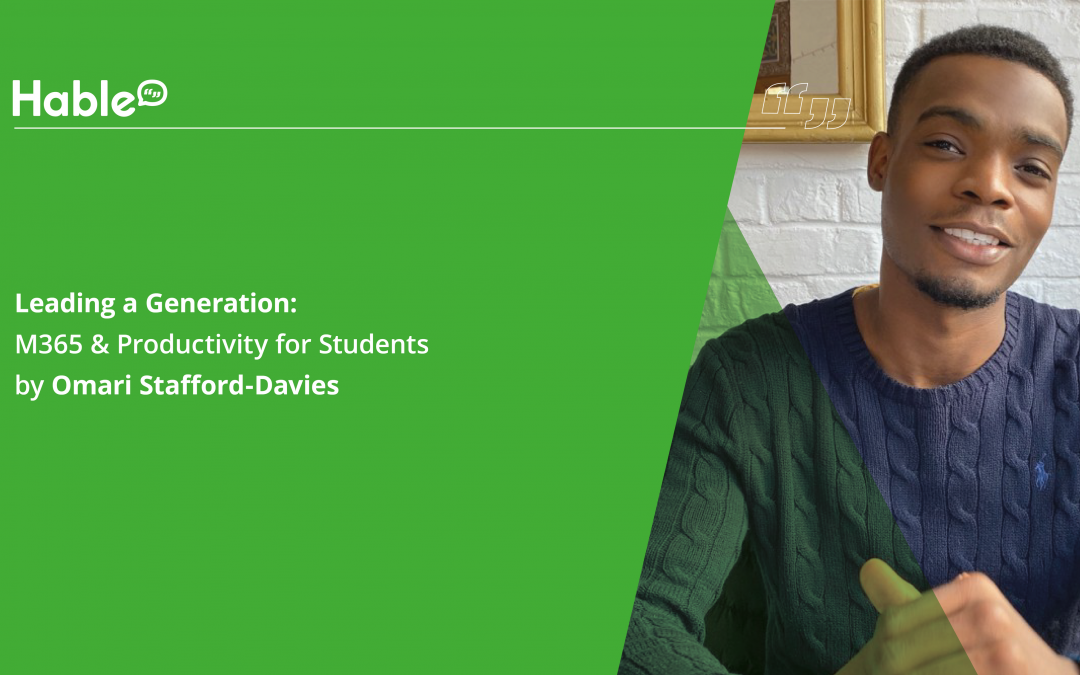
When I became a student, everyone told me that I’d have to work harder. However, I would say it’s more about working smarter. This can be done with the help of productivity software to plan and schedule your activities.
Many of us need specific tools to complete our studies. You might use Microsoft Visual Studio for developing computer programmes, Word for writing coursework, or Calendar for scheduling meetings.
But why should you use productivity tools?
Simple. It makes essential, everyday computing tasks more efficient.
Think of the last time you used your computer, which was probably sometime today. What task did you need to accomplish, and what software did you use to do so? The likelihood is, you used productivity software.
Everyday tasks can be tackled with productivity tools.
Need to write your placement report? What about creating address labels, or a graph with data you’ve collected from your recent survey? All the above and more are easier to do thanks to productivity software.
For your benefit, I tested the tools listed below, for both ease of use and how well they worked on Windows 10. I’ll be focusing on apps that have helped me work more efficiently, rather than tools primarily used to work.
Listed below are three productivity tools I think you should have:
University Commitments
Beyond work, university commitments can consume a lot of time. Whether you’re on a committee or have 3 lectures a day, you need to manage your time and make good use of it. I discovered shared calendars while doing my internship at Hable and was, at first, scared by the concept. Why am I sharing a calendar and why are other people sharing theirs with me?
We have to work together effectively and that’s easily done when we can respect each other’s timetables. Through a shared calendar, you can see when people are free and when they aren’t, and vice versa. You can simply book a meeting with your supervisor without a 30-message long email chain suggesting and rejecting times and dates. You can also keep your supervisor happy with the ‘send later’ tool, it makes your all-nighters far more subtle as you can to send the work at 8am rather than the actual time you finished it.
To avoid all-nighters, try using MyAnalytics which gives you an insight into how you work, seeing your work habits can help you to create new, healthier ones.

Recognise what skills will be valuable in the work place…
Arguably, however, the most stressful part of university is the impending doom of it all ending. When thinking about the future and ‘adulting’, digital skills become transferrable. Being able to juggle being in the basketball team and the knitting society while doing a degree, shows that you’re a good team player, have an eye for detail and are good at managing your time. In the same way, your ‘send later’ and meeting booking skills are needed in the workplace. Plus, if you’re good at making and using spreadsheets in Excel you’re a serious candidate.
Even more so, thank your primary school teachers for teaching you basic PowerPoint skills and level them up, because PowerPoint is powerful in the workplace. Whether presenting your work or an idea to a boss or pitching your business to a potential client, PowerPoints are frequently used. In addition, Microsoft Word has a CV assistant in the review menu that works with LinkedIn to give you examples of how people describe their work experience in their CVs for inspiration. It also lists the top skills in your industry so you can develop them or put them at the top of your CV, and lets you know about available jobs. Thus, entering the workplace and having a great CV are made easier when you have digital skills… are you seeing a theme here?

Accessibility
Finally, being a student isn’t my life, it’s more like a personality trait. There are things beyond being a student that affect how we study and live and it’s important that we consider these factors for ourselves and other people.
For instance, the background blur feature in Microsoft Teams meetings came from Swetha Machanavajhala, a software engineer at Microsoft who is deaf. She would ask her parents to turn off background lights so she could focus on faces and lip-read better. Teams meetings can also be recorded for later viewing, transcribed and have live captions – my friend and I played around with them and found that they are very accurate (and politically correct).
There are also accessibility tools in the review sections of apps to ensure that documents are made in an accessible way, such as having good font size and colour combinations that are easy for everybody to read. A similar tool, MailTips, can be found in Outlook. They are messages in the InfoBar that let you know that recipients may prefer accessible content and a way for you to let people know how you prefer to receive your emails in a more discreet way. There are also views created to enhance focus and colour schemes that can cater to your light sensitivity and aesthetic preferences. You can get more information about all of this at the Microsoft Disability help desk and their accessibility webinars. I look forward to finding more ways to cater my own and other peoples’ experiences to their personal circumstances.
Conclusion
I guess, after all of this has been said, it becomes clear that my initial point is true: digital skills can help us tackle the challenges of work, commitments, career and accessibility. A great philosopher, Mr Miyagi, once said, ‘Man who catch fly with chopstick, accomplish anything’.
I think a person who develops their digital skills can accomplish anything.

